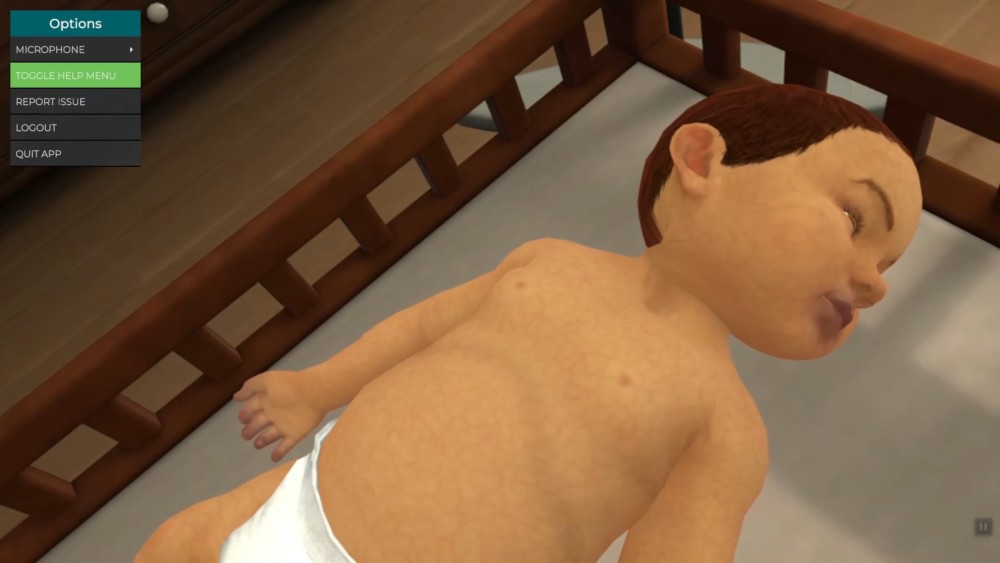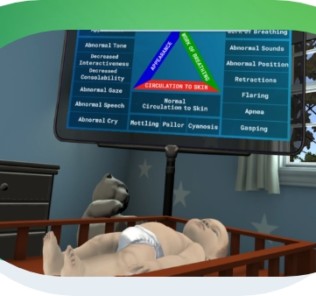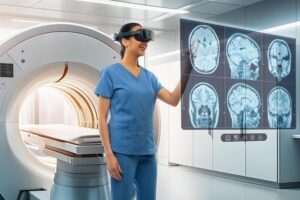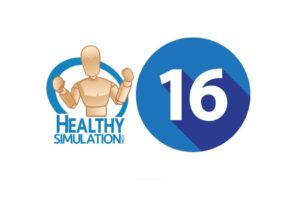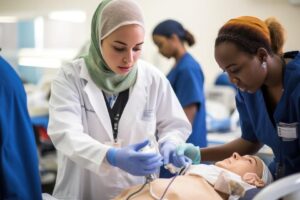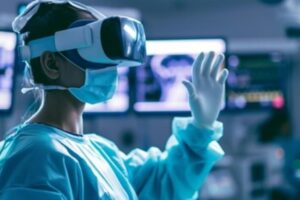Health Scholars, AAP Partner to Develop New First Responder Pediatric Virtual Reality Training
Virtual reality (VR) provides educators with the ability to scale experience-based training to any size population, while enabling an affordable and efficient way to increase exposure and the frequency of deliberate practice. Shown to have direct correlation with improved retention, performance and patient outcomes, Health Scholars and the American Academy of Pediatrics (AAP) have recently partnered to help make VR simulation training opportunities increasingly available to first responders.
Through this partnership, Health Scholars and the AAP have co-developed Pediatric Emergency Assessment VR simulation training and will soon release Pediatric Emergency Care. These VR applications equip first responders with the skills vital to assessing pediatric patients and managing pediatric resuscitation emergencies. This partnership was established to leverage VR technology to deliver more active and impactful training opportunities to EMS professionals.
Sponsored Content:
As a result, Health Scholars and AAP will provide first responders with the capability to continuously train on real-to-life pediatric emergency encounters using deliberate practice. The hope is that this will reduce readiness anxiety, and improve provider readiness and pediatric patient outcomes.
“Health Scholars is proud to partner with AAP to bring a truly meaningful innovation to market,” Health Scholars’ CEO Cole Sandau said. “The partnership will provide highly differentiated training from that which is currently available and help better prepare first responders for pediatric emergency situations.”
Additionally, The American Heart Association and the AAP both released updated training guidelines this year reinforcing the need for deliberate practice and mastery learning models with discrete goals, plus providing booster training via brief and frequent retraining sessions. VR simulation training effectively supports these recommendations, and in the 2020 AHA Guidelines for CPR & Emergency Cardiovascular Care Science and Education VR was specifically recognized as a recommended strategy to enhance resuscitation training.
“During the time of COVID, we need to design innovative educational methods that deliver critical content and skills, while recognizing that in-person training is not always feasible,” said AAP member Sarah Denny, MD, FAAP, who participated in application development. “Through this collaboration, EMS professionals can participate in distance learning using virtual reality and healthcare simulation to practice the critical hands-on skills that are necessary to treat pediatric emergencies in the field.”
Sponsored Content:
More about Health Scholars’ First Responder VR training Suite
Utilizing voice-controlled VR simulation, Health Scholars providers the only CAPCE-accredited first responder resuscitation VR training suite, featuring:
- ACLS VR Simulation
- Pediatric Emergency Assessment VR Simulation
- Pediatric Emergency Care VR Simulation (Releases Q1 2021)
ACLS VR Simulation
Designed in accordance with American Heart Association and Red Cross guidelines, learners serve as team lead across multiple cardiac emergency scenarios. They virtually treat patients who are stable, unstable, and in full mega-code conditions. Learners must identify ACLS rhythms, patient stability, and direct virtual team members to shock, give medications, and perform CPR.
Pediatric Emergency Assessment VR Simulation
With true-to-life assessment and stabilization scenarios, Pediatric Emergency Assessment hones competencies without in-person training or expensive mannequins. They must assess each patient, properly assess the findings, and use voice commands to initiate care. Learners are virtually presented with infants and children who present with physical findings of:
- Stability
- Compensated & Decompensated Shock
- Respiratory Distress
- Respiratory Failure
- CNS/Metabolic Disorders
- Cardiopulmonary Failure
- Pediatric Emergency Care VR Simulation
After refreshing pediatric assessment skills, first responders can practice the role of team lead, managing multiple in-home resuscitation scenarios with Pediatric Emergency Care. You’ll evaluate infants and children to identify underlying conditions, then intervene with pediatric resuscitation workflows — all in accordance with American Heart Association and Red Cross guidelines. Learners train virtually on pediatric length tapes, dosing medications and electricity, team-based management skills, and full cardiopulmonary resuscitation.
About Health Scholars’ VR Simulation
Health Scholars is the premier VR training provider for high-stakes clinical scenarios. Our mission is to advance healthcare education through virtualization, making experience-based training scalable, more accessible and more affordable to both healthcare and public safety providers.
Learn More About Health Scholars!
Sponsored Content:



